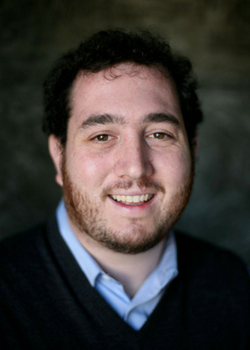Here, they are one people with one language for them all, and this is merely the first of their doings-- now there will be no barrier for them in all that they scheme to do!" (Genesis 10:6)
This week’s parasha contains two disaster stories. The first and more famous of the two is the story of the Flood, when humanity’s thirst for violence brings about the destruction of the world. The second is the story of the Tower of Babel, when instead it is the drive to power that leads to the disintegration of the human community.
In the first case, God’s solution is sweeping but temporary — literally to wash the slate clean and begin again. In the second, God’s reaction has more persistent consequences: By dividing the human population into smaller groups, each with its own language, the idea was that our collective destructive power could, at least, be mitigated. And so it was, at least until today.
For the first time since the generation of the Tower of Babel, we live in a truly interconnected world (Facebook now has more monthly users than the entire combined populations of North America and Europe). As technology draws us closer together and allows us to reach across every political, cultural, and geographic divide, we have effectively shattered the curse of Babel and reclaimed for ourselves the capacity to come together not just as citizens of a town or state or nation, but as an entire world.
There is a tremendous amount to be excited about in our post-Babel world. When a devastating tsunami struck countries on the Indian Ocean in 2004, support came from every part of the globe. In all, a staggering $14 billion were raised to help support humanitarian efforts that were often taking place thousands of miles away. Today, massive and unprecedented scientific ventures to cure disease, eradicate hunger, and discover the origins of our universe are only possible because the world’s best minds are able to work together across borders for the sake of a higher purpose.
However, we must also not forget about the dangers this new era brings. While once we had only the power to destroy one little patch of the planet, over the last century we have developed the ability to bring disaster to the whole thing. Our new technologies give rise to weapons that can exterminate the entire human population and to a reliance on fossil fuels that may earn us a repeat of the Biblical Flood. We have unbelievable power in our hands and not necessarily the wisdom to know how to handle it.
Our Rabbis teach that the sin of the Tower of Babel was not the project itself, but the fact that in the process of constructing it people lost sight of human values:
The builders brought bricks up on one side and came down on the other. If a man fell down and died, not a thought was given to him. But, when a brick fell down, they stopped work and cried, saying, "Woe unto us! When will another be brought up so we can continue?
(Pirkei D'Rabbi Eliezer, 24)
Technological power is amoral; it makes things possible but cannot teach us how to use those new possibilities with wisdom, compassion, and purpose. In this age, religion is more important than ever before. Religion teaches us to act with intention, to ask questions not just about whether we can but also about whether we should, to introduce a moral sensitivity to the exercise of our power. It is up to us to determine whether our technological, post-Babel era will bring about the world’s salvation or its destruction. We cannot afford to choose wrong.
Shabbat shalom.

